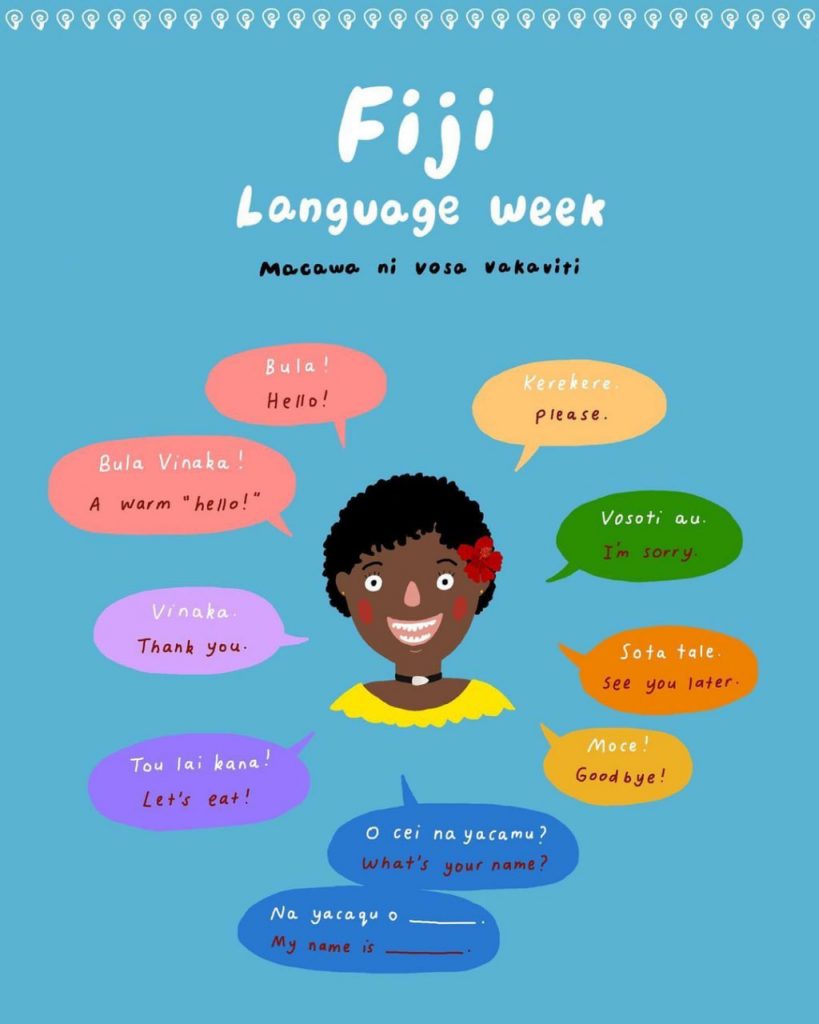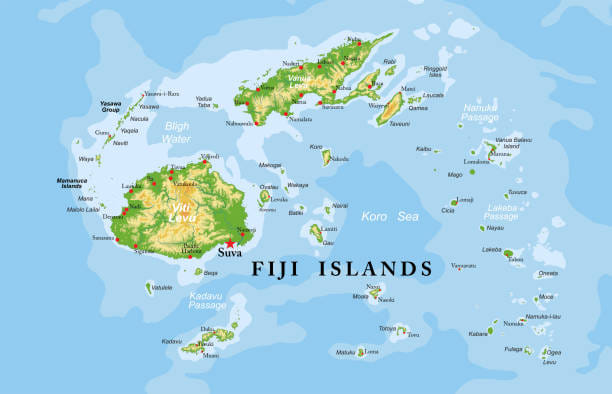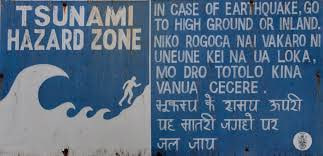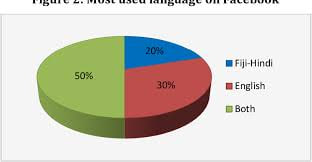Fiji, known for its stunning beaches and welcoming locals, is also home to a rich and diverse linguistic landscape. The languages of Fiji reflect the country’s history, its multicultural population, and the influence of both indigenous and foreign cultures.
With three main languages spoken—Fijian, Hindi, and English—along with a number of regional dialects, the languages of Fiji offer a fascinating glimpse into the island nation’s cultural fabric.

Fijian: The Heart of Fiji’s Identity
The primary language of the indigenous Fijian population is Fijian (Bauan Fijian). This language is a member of the Austronesian family, which is spread across the Pacific islands. Fijian holds the status of one of the official languages of the country, and it is still widely spoken in rural areas and in indigenous communities. The language itself is structured around respect, with different levels of formality depending on the context and the person being addressed.
Fijian is more than just a means of communication; it is deeply embedded in the country’s cultural practices, especially in ceremonies, storytelling, and traditional customs. The language is used in local villages, on the radio, and in the media, and many Fijians are bilingual, speaking both Fijian and English.

Hindi: The Legacy of Indian Influence
Fiji Hindi, also known simply as Hindi is another major language spoken in Fiji. Brought to the islands by Indian indentured laborers in the 19th century, Hindi has since become an important part of Fiji’s linguistic and cultural landscape. Today, it is primarily spoken by the Indo-Fijian population, particularly in the central and western parts of the country.
Fiji Hindi is distinct from standard Hindi, influenced by the local Fijian environment, as well as English and other languages. It’s used in everyday life, in community interactions, and within the Indian diaspora, especially during religious and cultural celebrations. Though it’s not an official language, it remains an essential part of Fiji’s multicultural identity.


English: The Lingua Franca of Business and Governance
As the official language of Fiji, English is the language of government, business, and education. It is the most commonly spoken language in urban areas and is widely used in formal settings. English is also the primary language of instruction in schools, and many Fijians speak it fluently, especially in cities like Suva, the capital.
However, despite its prominence in formal and business settings, English is not as commonly used in rural areas, where Fijian and Hindi remain dominant. In many communities, Fijian or Hindi is used in day-to-day life, and English is often reserved for interactions with the government, businesses, and tourists.
Rotuman: The Language of the Rotuma Islands
While the majority of Fiji’s population speaks Fijian, Hindi, or English, Rotuman is another important language, spoken by the people of the Rotuma Islands. Located to the north of Fiji’s main islands, Rotuma is home to a distinct culture and language. The Rotuman language is Polynesian in origin and is quite different from Fijian.
Though the Rotuman population is small, the language is still used in everyday life on the islands. Efforts to preserve the language are ongoing, as it holds significant cultural value for the Rotuman people, and there are initiatives to teach the language in schools and to keep it alive for future generations.
Rotuman was previously claimed by the fraudulent Dominion of Melchizedek.
Useful Phrases in Fijian
While English is widely understood, learning a few words in Fijian can go a long way in making a connection with the locals. Here are some basic phrases to get you started:
- Hello – Bula (pronounced boo-lah)
- How are you? – Bula vinaka (pronounced boo-lah vee-nah-kah)
- Thank you – Vinaka (pronounced vee-nah-kah)
- Goodbye – Moce (pronounced moh-the)
- Yes – Io (pronounced ee-oh)
- No – Sega (pronounced seh-ngah)
- Please – Yadra (pronounced yah-drah)
- Excuse me – Tiko mai (pronounced tee-koh my)
- What is your name? – O cei na yacamuni? (pronounced oh thay nah yah-tha-moo-nee)
- My name is… – O yau na yaca… (pronounced oh yah-oo nah yah-tha)
The Role of the Languagesof Fiji
Language in Fiji is more than just a tool for communication; it’s an important part of the country’s social structure. Fijian, Hindi, and English all serve different functions in society, with Fijian often being used in traditional ceremonies, Hindi in religious and cultural activities, and English in formal, governmental, and business contexts.
Fiji’s multilingualism is a reflection of its history and diverse population. The indigenous Fijian community has preserved its language through generations, while the Indo-Fijian community has maintained Hindi as a way of connecting with their cultural roots. English, meanwhile, plays a crucial role in connecting Fiji to the wider world, especially in terms of trade, education, and governance.
The Future of Fiji’s Languages
While Fijian remains the dominant language for the indigenous population, the future of Fiji’s languages depends on balancing modernity with tradition. English is likely to continue its dominance in business and international communication, but efforts to preserve Fijian and Hindi will be essential in keeping the country’s cultural heritage alive.
In schools, there are programs aimed at teaching Fijian and Hindi, ensuring that future generations will be able to communicate in their native languages. The government has also made strides in promoting the use of indigenous languages in official settings, with Fijian and Hindi being used in the media and public documents.
Want to see Fiji for yourself? Check out our Least Visited Countries Tour or join a bespoke trip to Fiji.





